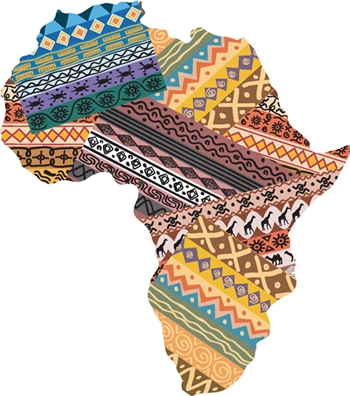
The African Higher Education in Emergencies Network (AHEEN) grew out of a challenge grant in 2020 to “design an African solution to the African problem of limited higher education access by refugees and IDPs on the continent”. Following a year of research and mapping studies the AHEEN was launched in the autumn of 2020 with a core of member universities in the largest refugee-hosting and refugee-producing countries: Kenya, Somalia, and South Sudan. The AHEEN works within the framework of the Grand Bargain commitments as an all-African initiative designed to strengthen a continental response to tertiary education needs and decent work for forcibly displaced youth on the continent using a whole-of-society approach.
The AHEEN’s four key objectives
- Offer “refugee-ready” diplomas that are digitally delivered with a strong employability focus, and are built on curricular frameworks linked to 21st Century skills and social-emotional learning;
- Advocate for inclusion of refugees in national education systems at tertiary level and work with relevant authorities to create more flexibility in credential verification and recognition; and for inclusion in the formal economy through digital internships (PPP) and subsequent work permits (CRRF framework);
- Build a strong network of universities on the continent to diversify academic domains in which diplomas are offered and to ensure availability of onward learning pathways, and
- Ensure that faculty teaching on diplomas can build their digital pedagogical skills and that refugee-led organisations and teams working in refugee contexts support learning on the ground.
AHEEN members
Membership is deliberately mixed to ensure that graduates transition to the labour market in the communities and contexts they live in.
- University members during the launch phase: University of Nairobi, Moi University, Somali National University, University of Juba, ADUN (African Digital University Network hosted by Stellenbosch University); Kenyatta University
- Non-University members and stakeholders: WERK (Women Educational Researchers of Kenya), MDF (Global consultant and training firm, Nairobi office), Hewlett Packard, International Labour Organisation (ILO-PROSPECTS Program), YES (Youth Education & Sports) – a refugee-led organization specializing in supporting higher education delivery in refugee contexts (working in Kakuma, with links to Dadaab and Azraq refugee camp Jordan).
- Partners/observers: European Commission, HP, NaTakallam; ESDA (Education for Sustainable Development, a United Nations University program)
Diploma offerings during launch phase (September 2020-December 2022)
- University of Nairobi: Teacher Education in Emergencies; Community Interpreting
- Moi University: Entrepreneurship
- Somali National University: Social Work
- University of Juba: IT
- Kenyatta University: Disaster Management
Current funding
- Funding supports all 4 objectives and full scholarships for students.
- Seed grant and transition grant: Porticus Foundation (Auxilium) to WERK
- Support grant: Open Society Foundations to Moi University; NUFFIC grant to MDF.
Legal structures
The network is currently transitioning to a formal structure through MoUs signed by all members and with the network being legally hosted by the University of Nairobi. This will support the centralization of a permanent secretariat and fundraising. Currently, grants supporting the network are distributed across its members and support all four outcomes of the network.



















Hello,
I am an educator but with a passion for edtech. Are there and career opportunities for scholarship studies in education technologies in that field at the postgraduate level sponsored by AHEEN